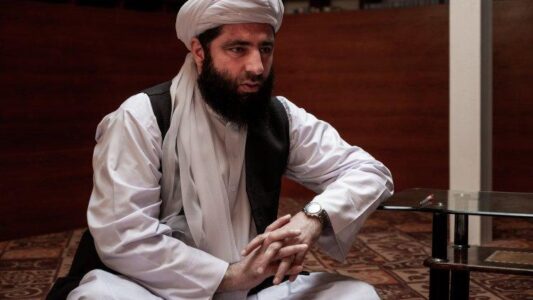
US will not fund non-state actors in Afghanistan
The United States has assured Afghanistan’s Taliban rulers that Washington will not fund any armed groups or non-state actors in the country, Taliban sources have told Al Jazeera.
The assurances were welcomed by the Taliban as Tajik armed groups, which have been backed by the West in the past, continue to challenge the group’s leadership – even as it has managed to contain the Tajik-dominated National Resistance Front and other groups aligned with the former Western-backed government since it returned to power in August last year.
The assurances were given during a meeting between US Department of State officials and Taliban representatives in Doha earlier this month.
While few details about the meeting in the Qatari capital are available, Taliban sources told Al Jazeera its members met with members of a high level US delegation, including CIA deputy director.
This meeting was the first since July when the US said it killed al-Qaeda leader Ayman al-Zawahiri in a drone attack on his hiding place in Afghanistan’s capital, Kabul.
Al-Zawahiri’s presence in Afghanistan led the West to accuse the Taliban of violating the 2020 Doha Agreement, in which the Afghan group agreed not to provide safe haven to al-Qaeda and other armed groups.
The Taliban swept into power last year in a lightning offensive but violence by armed groups such as ISIL affiliate ISKP has surged in recent months, posing a security challenge to the group.
Taliban reject US plan for Afghan assets
In the meeting, the Taliban also conveyed its rejection of the US announcement that it would transfer $3.5bn in frozen Afghan central bank assets into a Swiss-based trust, according to the Taliban sources, who have knowledge about the meetings.
Last month, the Taliban said the US decision to put part of nearly $10bn in Afghan assets – which it froze last August in an attempt to keep the Taliban from accessing it – into trust was “unacceptable and a violation of international norms”.
The US announcement had said the fund will be managed by an international board of trustees and used for debt payments, electricity, food, printing new currency and other essential needs and services.
The Afghan group has repeatedly called for the lifting of sanctions and the release of frozen funds, including international aid that was suspended after the Taliban takeover, to help its dying economy. Sanctions that had been placed on the Taliban during their first period of rule that ended in 2001 came back into force with them taking power last year.
The Taliban’s isolation
More than half of Afghanistan’s 39 million people need humanitarian help and six million are at risk of famine, the United Nations said in August.
No country has recognised the Taliban’s self-styled Islamic Emirate of Afghanistan, and its diplomatic and financial isolation has exacerbated the humanitarian crisis in the country, which has suffered from decades of war, including the last 20 years under US occupation.
The international community has urged the Taliban to respect human rights, including allowing girls access to schools and workplaces. But the group has put in place increasing curbs on human rights, further angering the international community and dashing any hopes of recognition.
However, the revelations about the Doha meeting show the US continues to engage with the Taliban despite the rift.
A state department spokesperson confirmed the Doha meetings to Al Jazeera.
“As we’ve made clear, we’ll continue to engage the Taliban pragmatically regarding American interests,” she told Al Jazeera.
Source: Aljazeera





